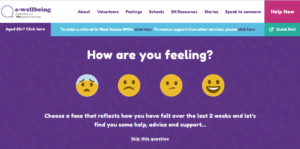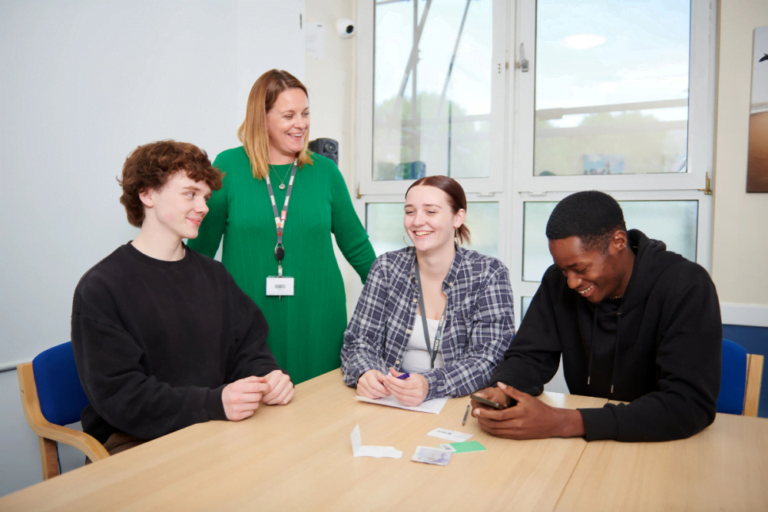Did you know that YMCA DownsLink Group is one of the biggest providers of wellbeing and counselling services to children and young people in Sussex? As part of Mental Health Awareness Week 2023, we want to shine a light on our wellbeing and counselling services to show the positive impact of our services, alongside our concerns about the significant rise in need for mental health support, and ways in which you can get involved.
What is the issue?
Children and young people are struggling with their mental health like never before. Last year, our counselling services saw more than 5,000 children, young people and families, a 62% increase on the year before. According to a large-scale NHS study (2021[1]), 1 in 6 children now have a probable mental health condition. A further study in 2022[2] revealed that 52% of 17–23 year olds said they’d experienced a deterioration in the mental health and wellbeing over the last 5 years.
Waiting lists are already too long and they’re growing. Whilst children and young people are waiting for diagnosis and/or counselling, their symptoms can worsen, making treatment longer and more complex.
Why are children and young people seeing such a deterioration in their mental health?
There is no easy answer. The rise was happening pre-pandemic, perhaps fuelled by societal influences such as social media and academic pressures, but two years of major disruption to education, limited opportunities for ‘real world’ socialising or activities, coupled with significant anxiety around the health impact of Covid has contributed significantly to the escalating need. The current cost of living crisis is also having an impact.

Why are children and young people struggling to access mental health services?
On average, local NHS commissioning groups spend less than 1% of their overall budget on children’s mental health and 14 times more on adult mental health services[3]. The first point of call is often the local Children and Adolescent Mental Health Service (CAMHS), but it is overwhelmed by demand and many children and young people may not meet their threshold.
Many children and young people rely on counselling in schools, however these costs come from school budgets which are also under strain. In some areas, there’s very little support for children under the age of 11 who have emotional and wellbeing needs. We know families are desperate for support to intervene early with their child’s mental health, but funding isn’t there for us, or others, to provide this.
In addition, due to the cost-of-living crisis, more families are struggling to pay for therapy services privately and are becoming more reliant on funded services like ours.
What is the impact of waiting for mental health support?
When a child or young person first reports an issue, or concerns are raised, it is likely that they’ve already been having symptoms for a while. Early intervention results in the best outcome for many issues such as low mood, school refusal, anxiety, eating difficulties and relationship difficulties. Their condition is likely to deteriorate whilst waiting to be seen.
We’re seeing an escalation in the severity of children’s mental health issues across our referrals. In turn, this means more time and resources are needed to help those children and young people to get better.
What are we doing?
Despite the pressures, we are working hard alongside our NHS & local authority partners to provide counselling in as many settings as possible (community, schools, online).
Last year we provided a range of counselling services to over 5,000 children, young people and families. This was delivered through a variety of services including, counsellors in schools, community counselling, family mediation and group work.

In addition, our e-wellbeing digital platform was able to offer ‘self-help’ support and resources for anyone with low level mental health needs across a range of issues.
But, we want and need to do more!
What do we want?
Tackling the current mental health crisis will take money. Funding needs to be allocated to both train practitioners and reduce waiting lists to ensure children and young people can be seen quickly and offered early intervention.
Funded mental health support teams in schools are being rolled out, but it still doesn’t cover every school across Sussex. There’s a pressing need for easy, direct access, to mental health support in schools, such as counselling.
Rather than wait for young people to require hospital care, funding needs to go into early intervention services like ours. We are well placed to tackle issues like low mood, anxiety, eating difficulties and relationship difficulties before they escalate into crisis.
In addition, whilst for many a short intervention of therapy will be sufficient, those children and young people who have experienced trauma, or had significant childhood relationship and attachment issues, will need much longer therapeutic interventions. Currently there is little funding for this.
What happens at 18?
A key issue around mental health support is that once someone reaches 18, significant amounts of support, previously available to them, drops off. There can be a dangerous ‘gap’ in support and provision for someone transitioning between ‘Child’ and ‘Adult’ mental health services.
This is a particularly challenging issue for those children and young people living in our supported accommodation, who can suddenly find themselves without professional mental health support.
We want to see more flexibility to be able to respond to young people’s mental health needs up to the age of 25 to give them the best chances of thriving in adulthood.
What can I do?
Sign up for our newsletter / Share this article with friends or family to raise awareness / Write to your local MP / Donate / Stay up to date with our campaigns by following us on social media.
Stories of our impact

Find out more about how our counsellors, and the different therapy we offer, positively impacts children and young people’s lives.
Read Mollie’s story here: Mollie struggled with anxious thoughts that were taking over her life. Once she started seeing a YMCA counsellor, everything changed.
Read Sam’s story here: Following on from two lockdowns and starting a new school, Sam was suffering from social anxiety. After reluctantly started therapy with us, Sam settled into the sessions and his worries began to lessen.
Find out more about YMCA Dialogue Services here.
References & Links:
[1] NHS 2021 Study


